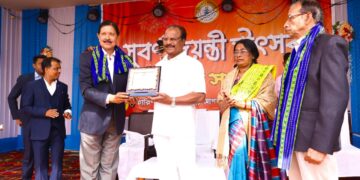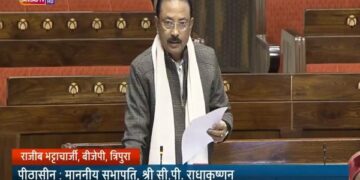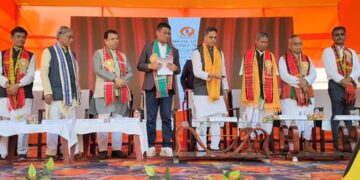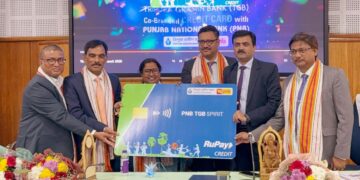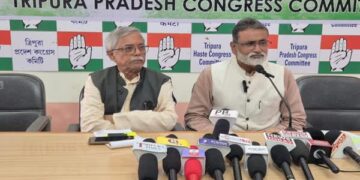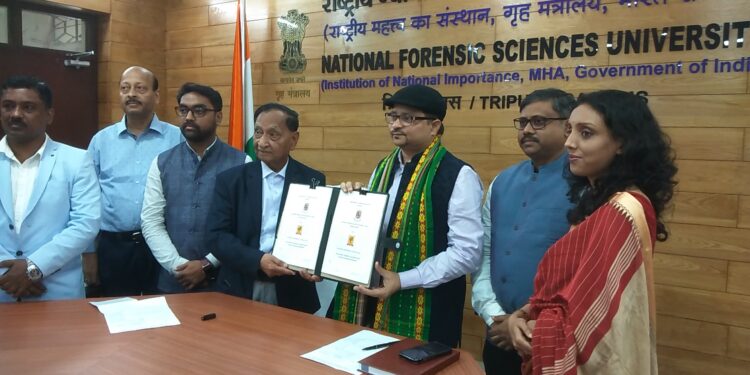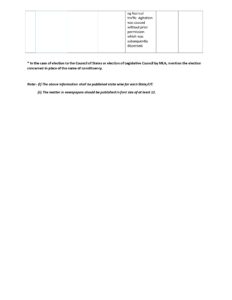Agartala, February 14: In a significant move to enhance legal and forensic education, the National Forensic Science University (NFSU), Tripura campus, and the National Law University Tripura (NLUT) signed a Memorandum of Understanding (MoU) for academic and research collaboration, including student and faculty exchange program, on Friday.
The MoU was signed by Dr. H.K. Patihari, Director of NFSU Tripura campus, and Professor Y.P. Singh, Vice-Chancellor of NLUT, in a ceremony held at the NFSU campus in Radhanagar, Agartala. Faculty members from both institutions were present on the occasion.
Speaking to reporters after the signing, the officials emphasized that the collaboration would significantly benefit both students and faculty by bridging the gap between forensic science and legal studies.
They noted that forensic and legal disciplines are interdependent, playing a crucial role in criminal identification and the delivery of justice through scientific evidence within the legal framework.
Highlighting the impact of the partnership, they stated that the collaboration would contribute to increasing conviction rates in India, which currently stand at only 13-14% due to a lack of scientific and legal expertise among forensic teams and law practitioners.
In contrast, investigative agencies like the CBI, where personnel are trained in forensic science, maintain a much higher conviction rate of around 70%.
They stressed that forensic science, including criminal science, ballistic science, and digital crime investigation, has become essential for lawyers, judges, and investigators to establish strong evidence in court.
The exchange program will equip students with critical knowledge and technical skills, ensuring they are well-prepared to handle complex criminal cases.
Additionally, they pointed out that many criminals exploit legal loopholes due to the lack of scientific understanding among, investigators, prosecutors and legal experts.
The MoU aims to address this issue by enhancing legal professionals’ ability to interpret and utilize forensic evidence effectively.
With this academic partnership, both institutions hope to produce better-trained legal and forensic experts, ultimately strengthening India’s criminal justice system and improving conviction rates.


